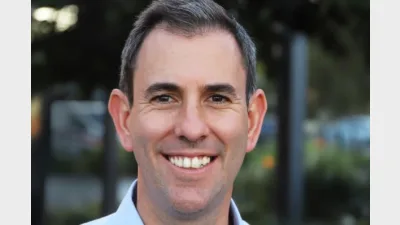Budget gets industry nod of approval
The Federal Budget received an overwhelming positive response from the key organisations representing the Australian superannuation industry.
Both the Association of Superannuation Funds of Australia (ASFA) and the Investment and Financial Services Association (IFSA) were fulsome in their praise of the Budget, despite the fact it had not delivered on one of their key requests — the abolition of the 15 per cent superannuation contributions tax.
ASFA said the superannuation plan outlined by Treasurer Peter Costello had the potential to “sweep away some of the frustrating complexity of Australia’s superannuation system”.
ASFA chief executive Philippa Smith said the removal of the end benefits tax, the introduction of a flat $50,000 aged-based contribution limit for under 49-year-olds, and one set of rules for super pension payments represented a surprise package on the part of the Government.
“While we still need to crunch the numbers, these changes could make a significant difference to the adequacy of super in the long-term,” Smith said.
The chief executive of IFSA, Richard Gilbert, welcomed the Budget as giving Australians greater opportunities to save for their retirement.
“The effective removal of end benefits tax and tax on super pensions is a major step toward the simplification of an overly complex superannuation regime,” he said. “Similarly, the abolition of RBLs [reasonable benefit limits] and age based limits also represents an important positive step for superannuation.”
However, Tower Australia suggested the changes to the superannuation tax regime would generate significant strategy modifications on the part of retirees.
A spokesman for Tower said that, overall, retirement strategies for the short and medium-term would have to be reassessed, particularly with respect to issues such as capital gains tax, fringe benefits tax and salary packaging.
He said while it was considered that the changes would have a positive impact on most people, considerable rethinking would be required with respect to individual circumstances and superannuation strategies.
Challenger head of technical services Alex Denham took an equally pensive view, saying a number of issues needed to be more closely examined.
Denham questioned whether retirees who had commenced term allocated pensions in order to access the pension RBLs would be able to break their contracts once RBLs were not relevant.
Principal of Mercer Human Resources Consulting David Knox said the abolition of tax from all superannuation benefits from age 60, together with the abolition of the RBL, was “a positive development for individuals, households and the industry”.
He said the measures would encourage a higher level of savings into super.
“Providing the tax free benefits at age 60, rather than at the current preservation age of 55, will encourage employees to remain in the workforce longer,” Knox said. “In turn, this will increase our labour force participation rate and, to some extent, alleviate the effects of the skills shortage.”
However, he said that while many aspects of super had been simplified, individuals and employers would need to consider the implications of the changes.
“The new measures mean many people will need to change their financial plans and strategies,” Knox said. “For example, the Budget will affect transition to retirement and super contribution splitting strategies. Employers will also have to manage the needs and expectations of their older workers.”
He said Mercer expected the role of financial advisers to change significantly over time, as the need for complex tax and compliance advice on super was reduced.
Recommended for you
Following the roundtable, the Treasurer said the government plans to review the superannuation performance test, stressing that the review does not signal its abolition.
The Australian Prudential Regulation Authority (APRA) has placed superannuation front and centre in its 2025-26 corporate plan, signalling a period of intensified scrutiny over fund expenditure, governance and member outcomes.
Australian Retirement Trust (ART) has become a substantial shareholder in Tabcorp, taking a stake of just over 5 per cent in the gaming and wagering company.
AustralianSuper CEO Paul Schroder has said the fund will stay globally diversified but could tip more money into Australia if governments speed up decisions and provide clearer, long-term settings – warning any mandated local investment quota would be “a disaster”.











